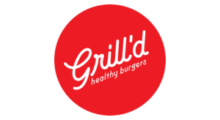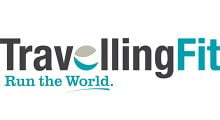
For most, running a marathon can take anywhere between 3 and a half hours to 5 hours. So, it’s extremely important you look after your body in the week leading up to the race. Carbohydrate loading is an important strategy to overcompensate our muscle glycogen (energy) stores to provide enough energy reserves to run 21.1km or 42.2km as best we can. Then if you feel a little nervous the night before or morning of, and have carbohydrate load well, eating a small meal like toast or cereal will be fine. From one week out, make sure you are eating lots of colourful fruits and vegetables, and sipping on fluids regularly.
4-5 days out start to reduce your fibre. This helps reduce the risk of runner’s gut on event day
(diarrhoea, stomach upsets, gas, etc). You don’t need to eliminate all fibre, but swap whole grain foods and fibre rich vegetables for white foods (white bread, rice, noodles, quick oats, juices).
As nutrition is individualised, this can be different for everyone. Some people can tolerate more fibre, if they have practiced in training or typically eat a high fibre diet. Therefore, it’s best to listen to your body.
3-4 days out, start to carbohydrate load. I find carbohydrate loading for 2-3 days and then the day before eating normally helpful for not feeling heavy and sluggish come event day.
Tips for carbohydrate loading
● Aim for ~5-8g of carbohydrates per kilo of body weight
● Depending on your speed, body composition (lean muscle vs fat mass) and tolerance to large amounts of carbohydrates, you may need more or less, so we suggest speaking to an Accredited Sports Dietitian.
● Use easily digestible white carbohydrates. We have many athletes who want to carbohydrate load on “healthy” foods. We have tried, but often they get too bloated and feel uncomfortable, particularly when tapering as well.
● Include carbohydrate rich drinks if eating a large volume of food is too difficult or makes you bloated. Soft drinks, fruit juices, cordial, flavoured milks (and coffee), and sports drinks are good options.
● Don’t garbo load. Try not to include foods which are high fat and high sugar or fried foods. This can leave you feeling heavy and sluggish.
● For smaller runners (50-70kg) and slower runners, aim for approximately 350g
● For runners ~70-85kg, or those who runner at a moderate pace (>5:30mins/km), aim for 400-450g
● For runners who weigh more than 85kg, or are quite fast and have a high muscle to fat ratio, aim for 500-600g
Editorial contribution by Science in Sport ambassador Christie Johnson (APD) | SportsDietitian.com | [email protected]
























